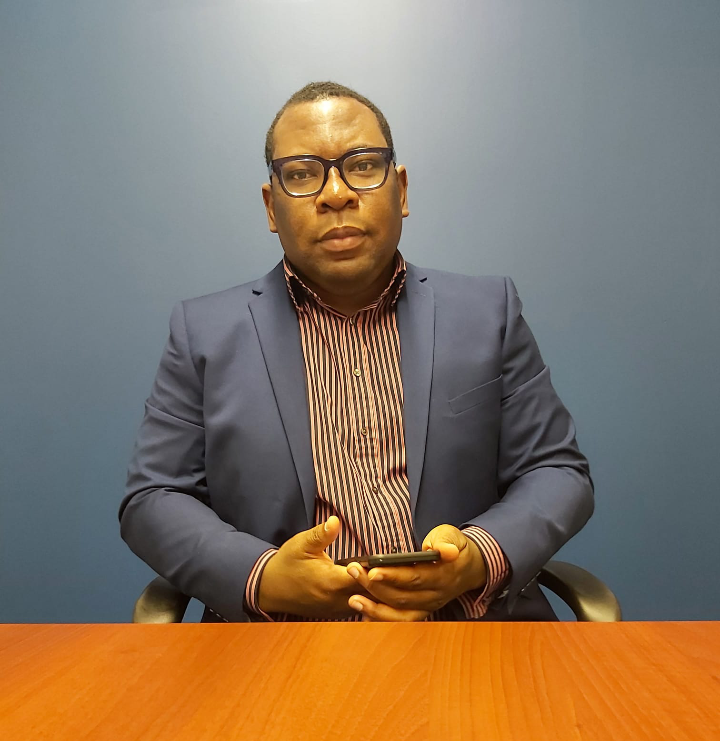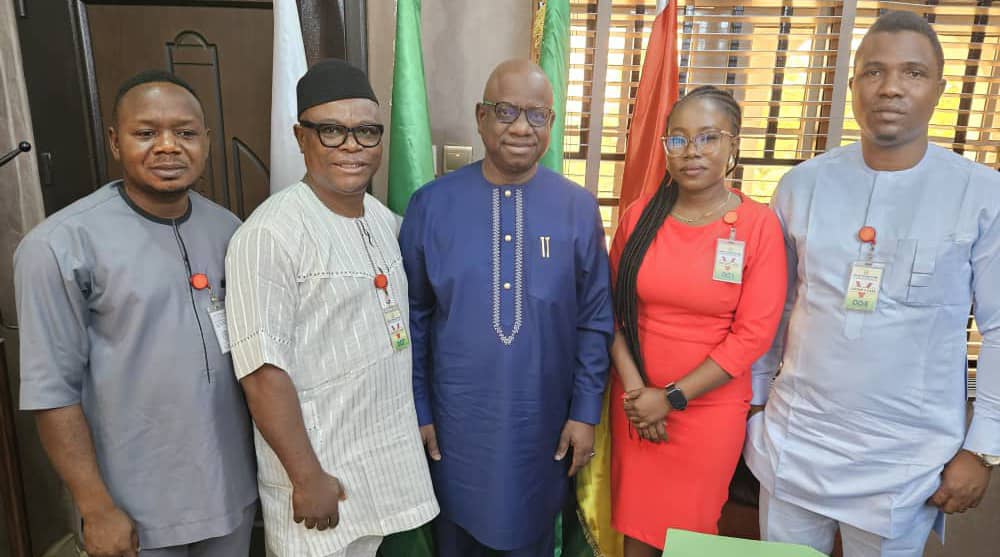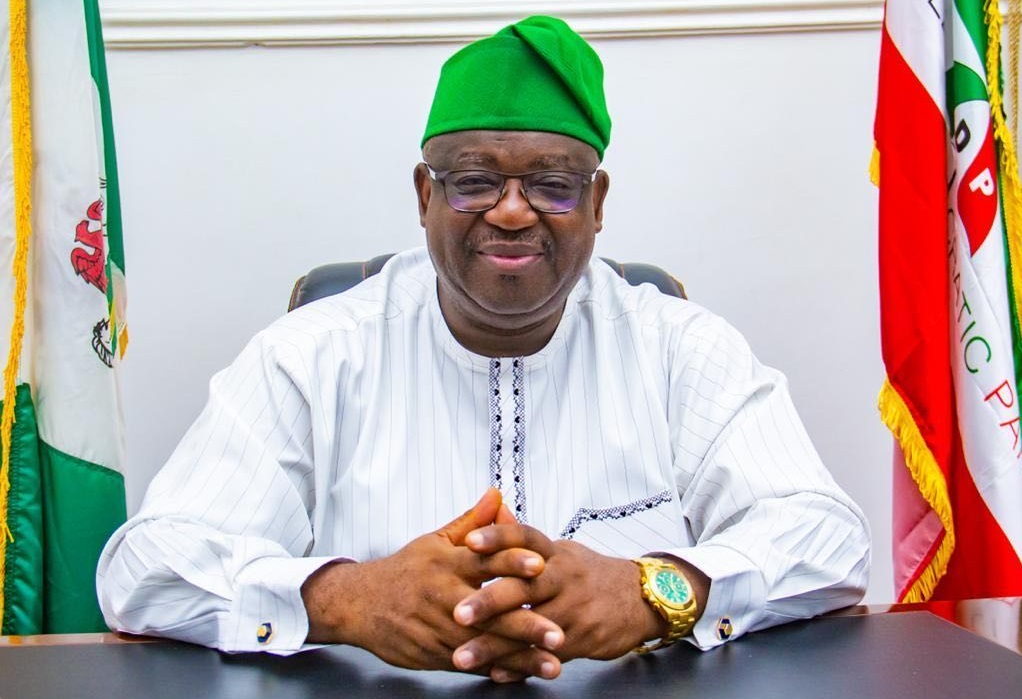News
Modernizing Nigerian Elections: Expert Insights on AI and Cybersecurity

In recent years, the United Kingdom’s election process has been hailed for its efficiency and transparency, with results typically declared within 24 hours of the polls end.
This contrasts sharply with the often delayed and contentious election outcomes in Nigeria. To gain insights into how Nigeria can modernize its electoral process.
In this interview, Kayode Sanni-Arewa, spoke with a leading expert, Oladoyin Akinsuli in AI and cybersecurity on how the use of AI in UK’s election and its efficiency in Nigeria’s electoral system, excerpts.
*Kindly introduce yourself*
Answer: My name is Oladoyin Akinsuli, I am a distinguished expert in artificial intelligence and cybersecurity strategy, known for his innovative approaches and significant contributions to the field.

*Thank you for joining us today. Can you start by explaining why the UK’s election process is considered a model of efficiency*
Answer: The UK’s election system is built on meticulous planning, robust logistical frameworks, and advanced technology. Key features include centralized and decentralized counting of votes, a comprehensive digital infrastructure for voter registration and verification, and high levels of transparency with results made publicly available in real-time.
*How can Nigeria improve its voter registration and verification processes using AI*
Answer: In Nigeria, issues like duplicate registrations and ineligible voters often undermine the integrity of the electoral roll. AI can significantly enhance the accuracy and efficiency of these processes. For example, AI-driven facial recognition technology can ensure each voter is registered only once, reducing multiple registrations.
Additionally, Natural Language Processing (NLP) can analyze and verify voter details, ensuring all registrations are legitimate and accurate. Estonia’s AI-enhanced electronic ID system is a great example of how such technologies can reduce fraud.
*What steps can Nigeria take to streamline its voting and counting processes*
Answer: AI can make voting and counting processes faster and more accurate. Machine learning algorithms can automate ballot counting, reducing human error and speeding up the process. Moreover, predictive analytics can forecast voter turnout and identify potential issues before they arise, allowing for proactive management and resource allocation. This ensures smooth operation on election day, similar to the UK’s use of electronic counting machines.
*Cybersecurity is a critical concern for elections. How can AI help protect the integrity of the electoral process in Nigeria*
Answer: Cybersecurity is indeed crucial. AI can play a significant role in detecting and responding to cyber threats in real-time.
AI systems can monitor network traffic for unusual activities and take pre-emptive actions to mitigate threats. Additionally, advanced encryption algorithms can secure sensitive voter data and election results,
making them tamper-proof and preventing data breaches.
*Transparency in results management is essential for maintaining public trust. How can AI and blockchain technology enhance this aspect*
Answer: Transparency is key to maintaining public trust. Integrating blockchain technology with AI can provide a transparent and immutable ledger of votes, ensuring that all results are verifiable and tamper-proof. AI can also automate the collation and reporting of results, providing real-time updates accessible to the public.
This approach ensures transparency and helps build confidence in the electoral process, as seen in Switzerland’s use of blockchain in elections.
*What strategic recommendations do you have for Nigeria to effectively implement AI and cybersecurity solutions in its election process*
Question: To effectively implement these solutions, Nigeria and INEC should consider the following steps:
1. *Invest in Technology Infrastructure:* Build a robust technological infrastructure to support AI and cybersecurity initiatives. This includes upgrading existing systems and investing in new technologies.
2. *Training and Capacity Building:* Invest in continuous education and training programs for INEC staff to manage and operate new technologies effectively.
3. *Collaborate with Tech Experts:* Partner with technology companies and cybersecurity experts to develop and implement advanced solutions.
4. *Public Awareness Campaigns:* Educate the public on the benefits of new technologies to ensure widespread acceptance and trust.
5. *Pilot Programs:* Implement pilot programs in select regions to test and refine AI and cybersecurity solutions before a nationwide rollout. Pilot programs can provide valuable insights and help identify potential challenges.
*In conclusion, what can Nigeria learn from the UK’s 2024 election process*
Answer: The UK’s 2024 election process demonstrates how AI and cybersecurity can enhance election efficiency, accuracy, and transparency. By adopting these technologies, Nigeria can address many of its electoral challenges, thereby strengthening its democratic processes and public trust. With strategic planning and investment, INEC can transform Nigeria’s electoral landscape, ensuring fair, secure, and efficiently managed elections.
*Thank you for sharing your insights. It’s clear that with the right approach, Nigeria can significantly improve its election process*
Answer: Thank you for having me. It’s been a pleasure discussing these important issues.
News
Guinea Woos Nigerian Investors to Join $20bn Projects

News
Nigeria’s inflation jumps to 24.23% in March 2025

Nigeria’s headline inflation rate rose to 24.23% in March 2025, according to the official government data source, the Nigeria Bureau of Statistics (NBS).
The rise in the country’s inflation rate, from 23.18% back in February 2025 to 24.23% in March 2025, reflected a major increase in the rising commodity and energy costs in the last few weeks.
According to the March 2025 Consumer Price Index (CPI) Report which measures the inflation rate released by the government agency on Tuesday, the country’s food inflation rate was 21.79% year-on-year in March 2025.
The food inflation rate, however, showed a decrease compared to the food inflation rate of 23.51% recorded in February 2025.
Economists had predicted that the country’s inflation rate which decreased minimally in February would rise when the Dangote Refinery and the state-run NNPCL got entangled in a petrol price war that culminated in the temporary termination of a naira-for crude agreement between the two oil companies and the subsequent increase in the pump price of petrol.
Some observers had also said the minimal reduction in the prices of food commodities experienced earlier in February was not sustainable, attributing the temporary decline in the prices of food to the importation intervention of the Federal Government.
Food and commodity inflation have skyrocketed as Nigerians battle what can pass for the worst cost of living crisis since the country’s independence over six decades ago, a development that economic wizards have attributed to President Bola Tinubu’s twin policies of petrol subsidy removal and unification of the forex rates.
News
Plateau 51: Mutfwang mourns, says “we failed you”, begs affected community

Governor Caleb Mutfwang of Plateau State has apologised to the people of Bassa Local Government Area (LGA) for the failure of government and security agencies to protect lives and properties.
Fifty-one persons were gunned down early Monday in the Zikke community of the LGA, with houses razed and many displaced about two weeks after a similar attack led to the killing of scores of persons in Bokkos Local Government Area.
Less than two days after the most recent assault, Governor Mutfwang apologised for the government’s inability to protect the people.
Fifty-one persons were gunned down early Monday in the Zikke community of the LGA, with houses razed and many displaced about two weeks after a similar attack led to the killing of scores of persons in Bokkos Local Government Area.
Less than two days after the most recent assault, Governor Mutfwang apologised for the government’s inability to protect the people.
The governor said this on Tuesday at the palace of the Paramount Ruler in Miango.
“I will tell you the truth: I have been crying since yesterday because I had trusted God that all the arrangements were put in place, that this will not happen again. We have made investments in security,” he said.
But like all human arrangements, sometimes they fail. I want to admit that on Sunday night into Monday morning, we failed you. Please, forgive me.”
He urged the people not to relent in their efforts to secure their communities and ensure that they complement security agencies’ efforts by providing vital information for intelligence gathering and expose the antics of the criminals.
Governor Mutfwang, in the company of security chiefs and members of the state executive council, was in Zikke community to commiserate with the people on the death of over fifty persons killed in Monday’s attacks.
The Paramount Ruler of Irigwe land, Ronku Aka, who is the Brangwe of Irigwe, urged the government to come to the aid of the communities with the provision of social amenities in the area.
The governor and the entourage also went to see some of the families who lost their loved ones in the attack. The victims have been buried just as members of the community demanded action to stem the rising wave of insecurity in the state.
Plateau State has been a hotbed of attacks, but the renewed spate of attacks adds a fresh layer of twist to the decades-long crisis rocking the North-Central state.
After the most recent assaults, President Bola Tinubu ordered security agencies to fish out the masterminds, describing the attacks as condemnable.
While experts have linked the lingering Plateau crisis to farmers-herders tussle for resources, Governor Muftwang said it was sponsored and genocidal.
According to him, over 64 communities in the state have been taken over by gunmen.
-

 News11 hours ago
News11 hours agoSHOCKING! One month after giving birth, woman discovers another baby in her womb
-

 News11 hours ago
News11 hours agoTears, anguish as Plateau Community buries 51 killed by bandits
-

 News10 hours ago
News10 hours agoAngry investors raid CBEX office, loot assets in Ibadan after digital Platform crash
-

 News9 hours ago
News9 hours agoCBEX: 60 fraudulent Ponzi scheme operators to avoid in Nigeria
-

 News17 hours ago
News17 hours agoPeter Obi speaks as Benue govt. blocks humanitarian visit
-

 Politics10 hours ago
Politics10 hours agoIgbo Youths Set To Mobilize 5 Million Man-March In Support Of Tinubu, Kalu
-

 News17 hours ago
News17 hours agoFUOYE VC suspended over sexual harassment allegations
-

 News10 hours ago
News10 hours ago‘Not something I’d wish on anyone’ — Melinda Gates opens up on divorce






